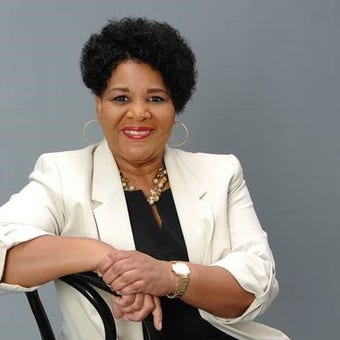Fox News Flash top headlines for April 25
Fox News Flash top headlines are here. Check out what's clicking on Foxnews.com.
April has a special significance for me and others who were convicted of a crime and served time in prison. It is Second Chance Month, commemorating a deeply American belief that people are capable of redemption and should not be forever defined by their worst moment.
April should also mark a call to action for every one of us. In recent years, our country has granted more second chances as people from across the political spectrum united around state and federal criminal justice reforms that reduced excessive sentences, improved conditions for inmates and encouraged rehabilitation. Despite these successes, many people who deserve a second chance remain behind bars, and they need our support.
I was once one of them. In 1996, I was convicted of a first-time, nonviolent drug offense and sentenced to life in prison without possibility of parole – an "unexecuted sentence of death."
DEROY MURDOCK: 'SYSTEMIC RACISM' IS NO MATCH FOR BLACK POWER
Despite that devastating sentence, I took responsibility for my mistakes and my own renewal. Through my family and faith I found strength and the inspiration to serve.
While in prison I became a hospice worker, an ordained minister, and a playwright, transforming not only my own life but helping others on their journeys as well. And through it all I refused to give up hope that I would one day return home.
More from Opinion
My prayers were answered in 2018 when President Trump granted me clemency and later a pardon. Leaving prison after almost 22 years, I vowed not to forget the people I left behind and to continue my work by advocating for criminal justice reforms and helping secure clemency for other individuals who deserve a second chance.
Over the decades, I have come to know many people who made mistakes – often serious ones – but who have rehabilitated themselves and have much to offer their families, communities and our society.
James Cruz is one of them. Born the youngest of eight children in a broken home, James was being raised by his father.
At just 15 years old, James’ life was turned upside down when his father died. James moved in with his older brother, but only three months later, his brother also died in an accident. With nowhere else to go, James went to live with cousins who were drug dealers. Following their example, James turned to selling drugs, what looked like an easy way to make money. But at 20, James was convicted of a first-time, nonviolent drug offense and sentenced to 40 years in prison.
I believe there are other ways our country can lower the barriers for individuals on their journey home.
James took these consequences to heart, and as he grew older in prison, he grew as a person. He later wrote, "I began to take full responsibility for my crime. I saw my crime for what it really was, poisoning people."
Dedicated to bettering himself, James wrote apologies to people he hurt. He learned skills in auto repair, computers and finance, and most importantly for him, he became a certified Bible studies teacher. James was a mentor to others in prison and as a model inmate he was moved from maximum security to a minimum-security facility.
When James’ attorney contacted me to assist with his clemency petition, I was honored to help. I raised awareness of his case among policymakers and activists who had helped me through my own struggles.
With the support of prison officials and local clergy, James got his second chance in January 2021 when President Trump granted him clemency. After two decades in prison, James went home to care for his 81-year-old mother, start a job at an auto parts company, and pursue his passion for religious studies and teaching.
James’ path to redemption – atonement, learning, finding purpose through service – is one I have seen thousands of people travel.
CLICK HERE TO GET THE OPINION NEWSLETTER
This April we can celebrate the lives already transformed by second chances, the families reunited, and the communities made stronger. But I believe there are other ways our country can lower the barriers for individuals on their journey home – and each of us can contribute to enabling these vital opportunities.
First and foremost, further policy reforms are needed. In recent years we’ve seen encouraging successes. Texas reduced its prison population while reducing crime rates. Pennsylvania enacted a "clean slate" law removing some convictions from public records, making it easier for people to get jobs. These reforms, and many others nationwide, were achieved with bipartisan support.
Citizens can help by urging policymakers to pass reforms in states that have yet to do so. For example, Arizona considered a bill this year that would have reduced drug sentences by half if offenders earned credits though a good disciplinary record and self-improvement. Despite bipartisan support, the bill failed to pass – though the sponsors remain optimistic the reform could be enacted in a future session if there is enough public demand.
CLICK HERE TO GET THE FOX NEWS APP
Beyond policy change, employers also have a vital role to play. Historically, due to stigma and legal barriers, the unemployment rate for people with a conviction was five times higher than the national average. But many employers are recognizing that hiring formerly incarcerated individuals is good for business, and more should be encouraged to give deserving individuals a second chance.
As these efforts show, there is a growing movement for criminal justice reform bringing people together from diverse backgrounds and perspectives. Let us use this Second Chance Month to continue that momentum, empowering more people to earn second chances, and in doing so, moving closer to our country’s ideals that honor the worth and potential of every person.










































